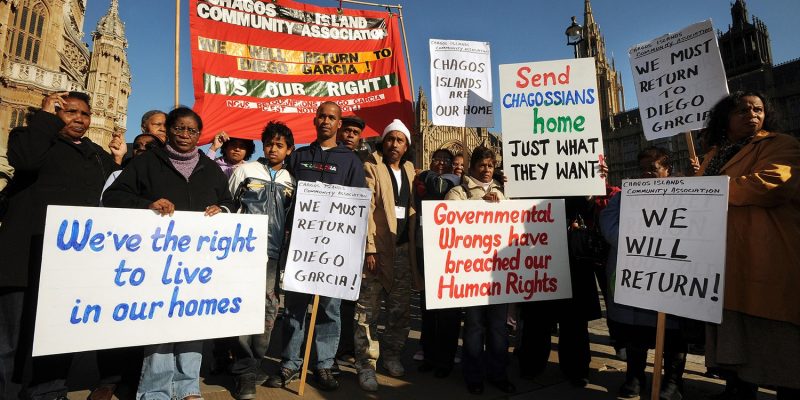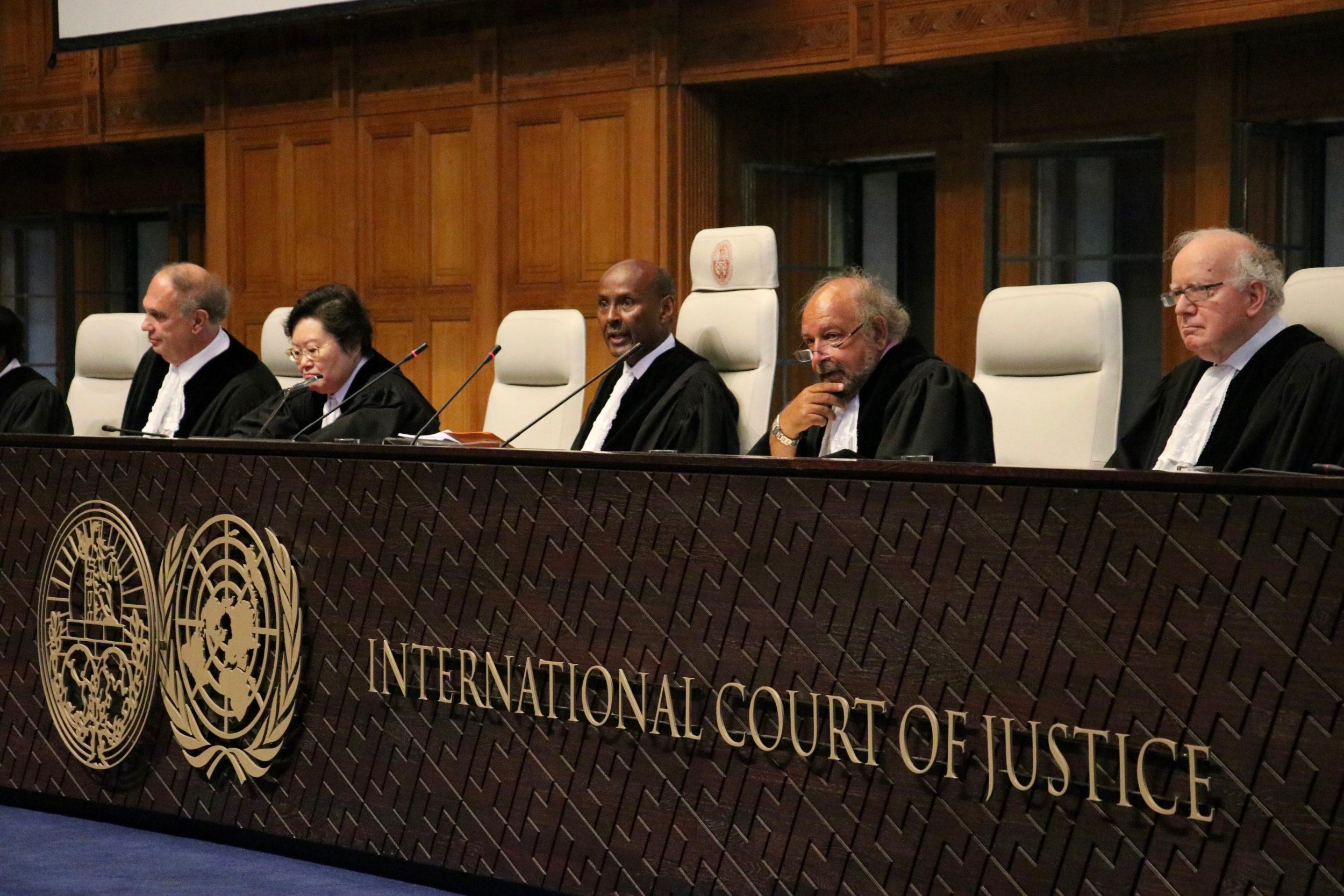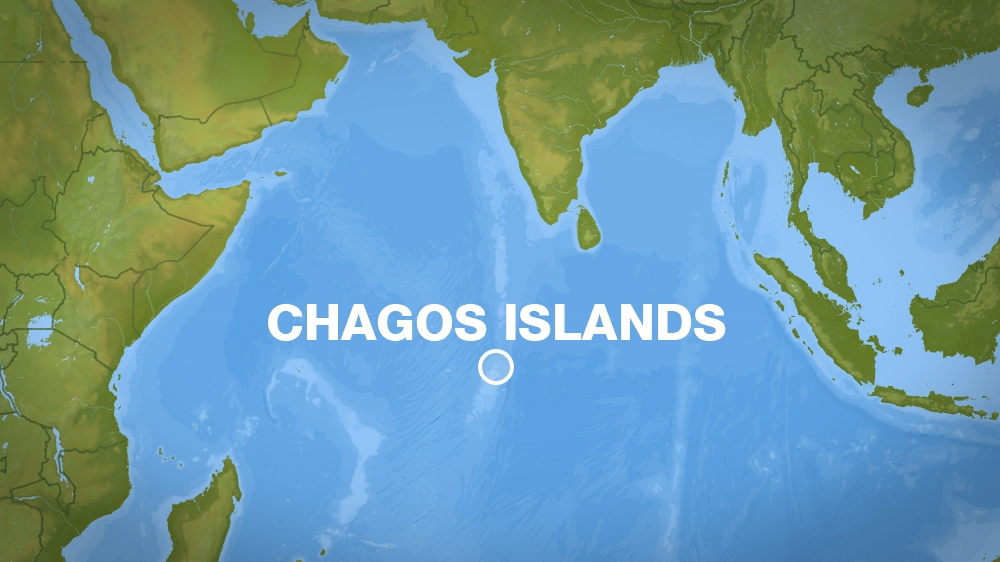By Erika Koutroumpa,
Self-determination: “the right of the people to decide their destiny in the international order”, arising from customary international law but now also recognized as a general principle of law thanks to a wide array of legal treaties. It is thanks to this principle that in the 1960s the initiation of decolonization took place. What usually comes to mind as a self-determination case is one involving an ethnic minority trying to separate itself, such as the issue of Kurdistan. However, in the Chagos Islands case, the opposite is taking place — the people are fighting for their right to integrate themselves back into the Republic of Mauritius.
After Mauritius gained its independence from the then-British Empire in 1968, the United Kingdom paid Mauritius 4 million pounds for the Chagos archipelago islands, resulting in them gaining separation from the rest of the dominion, becoming their independent colony of British Indian Ocean Territory (BIOT). What ensued was the creation of a military base in Diego Garcia by the Americans, and between 1,500-2,000 indigenous people had to evacuate. Up until very recently, the military base was still active, while the natives of the islands live in marginalized communities in Mauritius and nearby Seychelles, unable to return home.

The issue of the Chagos islanders’ return to their homeland started becoming a matter of concern before the long-awaited presentation of the case to the International Court of Justice (ICJ) in 2019. The situation became a matter of heated discussion in Mauritian politics in the 1970s, with an investigation being launched in 1982 after a change of government. The results of this inquiry concluded that the detachment was a breach of international law since it was conducted under the coercion of the British, but no further action took place. That was until it resurfaced after a trial between Mauritius and the Maldives regarding a maritime dispute.
The arbitration of the case was initiated under the UN Convention of the Law of the Sea (UNCLOS), however, it was quickly realized that the treaty cannot deal with territorial sovereignty. Hence, on 22 June 2017, the General Assembly Resolution 71/292, which refers to article 65 of the statute of the court, requests an advisory opinion on the following questions: if decolonization was lawfully completed by the time that Mauritius gained independence back in 1968 and what the consequences of the continuous administration by the UK in Mauritius were.
The answer to these queries came with the 25 February 2019 ICJ ruling. According to the verdict, the separation of the Chagos islands was contrary to the right of self-determination, and the UK continuing administration in Mauritius was considered an internationally unlawful act, which needed to end effective immediately. What was groundbreaking for this case was that it was clarified for the first time that respect for the right to self-determination is an erga omnes (= a decision that affects all states, not just the directly affected ones), and according to the ICJ “[b]oth State practice and opinio juris at the relevant time confirm the customary law character of the right to the territorial integrity of a non-self-governing territory as a corollary of the right to self-determination”. As a result, people of non-self-governing territories can exercise the right to self-determination concerning their territory as a whole, the integrity of which must be respected by the sovereign power in place.

So, how is the repatriation of the islanders progressing? Initially, the UK government ignored the UNGA and ICJ opinions, asserting that the islands would be returned when they would no longer be needed for security reasons. However, after the Hamburg tribunal for the law of the sea ruled that the UK occupation of the archipelago was illegal, Seychelles switched sides and started supporting Mauritius’ claim to the islands. Currently, Mauritius and the UK are under negotiations, but all scenarios on the table seem to involve the joint operation of the US/UK military base. One thing is for certain, though; Chagossians will continue to vouch for their right to return to their homeland and want to be more heavily involved in the intrastate negotiations taking place.
References
-
UN court rejects UK claim to Chagos Islands in favour of Mauritius. theguardian.com. Available here
-
Legal Consequences of the Separation of the Chagos Archipelago from Mauritius in 1965. icj-cij.org. Available here
-
UN General Assembly Resolution 1514 (XV). un.org. Available here
-
Definition- Right to Self-Determination. law.cornell.edu. Available here




